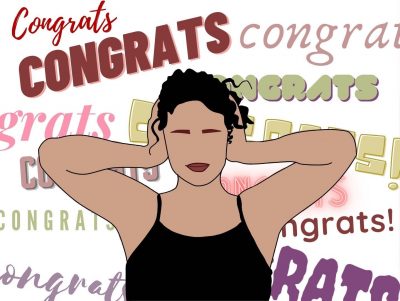Regardless of major or career, college students feel a certain pressure to outperform their peers. Our schedules could be filled to the brim with commitments, but we still want more on our plate, and essentially, more on our resume.
Social media plays a unique role in our portfolios — LinkedIn and Twitter now serve as informal resumes. But, these accounts are often not a true reflection of our personality.
Because we use these platforms to market ourselves to employers, our genuine thoughts and personality get lost in fake, over-celebratory LinkedIn posts and comments. We’ve all seen the ritual posts announcing someone has accepted a position at an amazing company. The comments are then flooded with insincere congratulations and unnecessary exclamation points.

Young people aren’t completely dominating the platform, so we still abide by a sense of expected professionalism. We all want ourselves to be presentable and hireable, which isn’t an inherently negative thing. It’s just our reality.
However, it’s all too easy for social media to become a place of shallow connections. We network with people not as a way to gain experience, but as an opportunity to get our foot in the door. That’s not the way networking should be, nor is this the way connections were meant to be formed.
Many students already struggle with work-life balance. But for student journalists especially, we are constantly working on a beat or checking the news, and social media has become something we heavily depend on to stay involved in our field. We have no finish line at which to stop working, and the pandemic has only fueled this phenomenon.
Every day is now a work-from-home kind of day, and it’s much easier to document our activities via Instagram stories and our Twitter feed. More online activity means more posts to compare yourself to.
And our move to remote work has also made the job and internship field much more competitive. You no longer have to worry about moving across the country or paying rent in a new city when you can just work on your couch. So, your job options increase, and so does your competition.
Some people may have found this helpful over quarantine and were able to brag to their friends about an easy job hunt. Others had the opposite experience and felt behind or unaccomplished because they were unable to snag an internship.
Beyond social media, it is evident our identities are hinged on our careers. When you meet someone new or catch up with friends from high school, the conversation now often seems driven more so by professional accomplishments rather than hobbies or interests outside of work.
As journalists, our passion is reporting. But that passion can become so intertwined with our own lives that we lose ourselves in the middle. So much of our time is spent achieving career goals, and as a result, we don’t have much to associate ourselves with outside of our work.
Competition among peers can certainly be a positive thing. You may look at photographs or articles other journalists took or wrote and say, “Hey, they had an interesting angle.” You can then use their work as an inspiration for your own.
Or, you can discuss internships with your fellow classmates and spend the entire conversation one-upping each other.
Our interactions with industry peers can get toxic very quickly. Even various student publications seem to have certain animosities toward competing papers. But we cannot let our competitive nature impede us from building a supportive community.
Now is the time for cheesy advice.
Internal factors — such as insecurity — affect our interactions with one another. So, before we want to address the toxic hustle culture in our society, we must first make the changes on an individual level.
It’s human nature to compare yourself to others, but your self-worth should not be rooted in the outcome of competition with others. We are all on our own path to success, and we need to grow past the mindset of constant comparison.
We can still be competitive. We can still push our peers to be and do better, but it’s clear when our motives have morphed into something negative.
At The Daily Free Press, we do our best to promote a positive workplace environment. Even though our newsroom has gone virtual, we have built a community and network that wants its members to grow and succeed. However, the paper shouldn’t have to define our entire life — we can have an identity outside of it.
Everyone is allowed to be more than their career, and we shouldn’t define success based on LinkedIn connections or big-name internships. Make an effort to focus your conversations on the person you’re speaking to, rather than their job title.
We could continue with the heart-wearming advice forever, but it won’t mean much until you believe it yourself. Be satisfied with your accomplishments, confident in your skill and proud of the progress you’ve made — that’s all worth more than a retweet.





















































































































